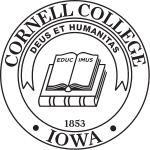Established in 1853, Cornell College is a private liberal arts college located in Mount Vernon, Iowa, USA. With a focus on undergraduate education, the college enrolls just over 1,000 students, providing an intimate academic setting that fosters close interpersonal relationships between faculty and students. Nestled in a picturesque small-town environment, Cornell College offers a diverse range of degree programs across the liberal arts and sciences, facilitating a comprehensive educational experience within an idyllic American Midwest campus.
Cornell College stands out with its distinctive One Course At A Time curriculum, where students immerse themselves in a single subject for three-and-a-half weeks before moving on to the next. This unique academic schedule allows for a depth of study and experiential learning opportunities that are rare within higher education. Students have the chance to engage in off-campus study, intensive research, and internships without the pressure of juggling multiple subjects simultaneously. Such a focused approach can lead to an annual production of a Shakespeare play entirely by students in just a few weeks, a testament to the effectiveness of immersive learning.
The positive attributes of Cornell College are manifold, illustrating its commitment to offering a quality education and creating a substantial impact both academically and in the community. Its distinctive academic calendar has been lauded for enhancing student engagement and retention of material. The college's emphasis on small class sizes ensures personalized attention, contributing to a higher level of academic achievement for its students. Moreover, the college community is known for its inclusivity and effective sustainability initiatives that demonstrate its dedication to social responsibility and environmental stewardship.
Despite these strengths, Cornell College faces certain challenges. The rigorous nature of the One Course At A Time model, while advantageous for many students, can also present scheduling challenges for others, particularly for those who may wish to study abroad or take internships that don't align neatly with the college's unique academic calendar. Additionally, being a smaller institution, Cornell might have fewer course offerings compared to larger universities, which could limit students' elective choices. Each potential drawback, while specific and nuanced for each individual, shows that even the most innovative educational models must continually adapt to best serve their student body.



